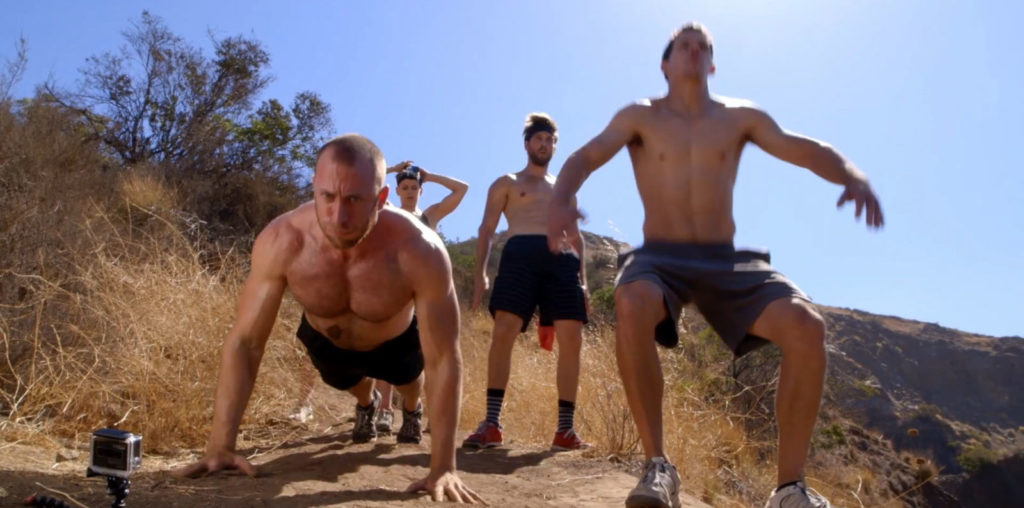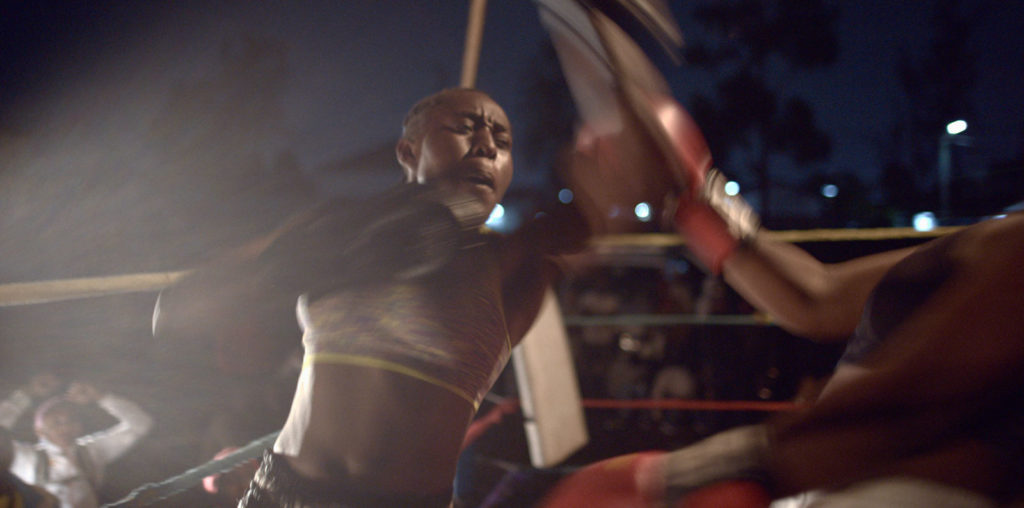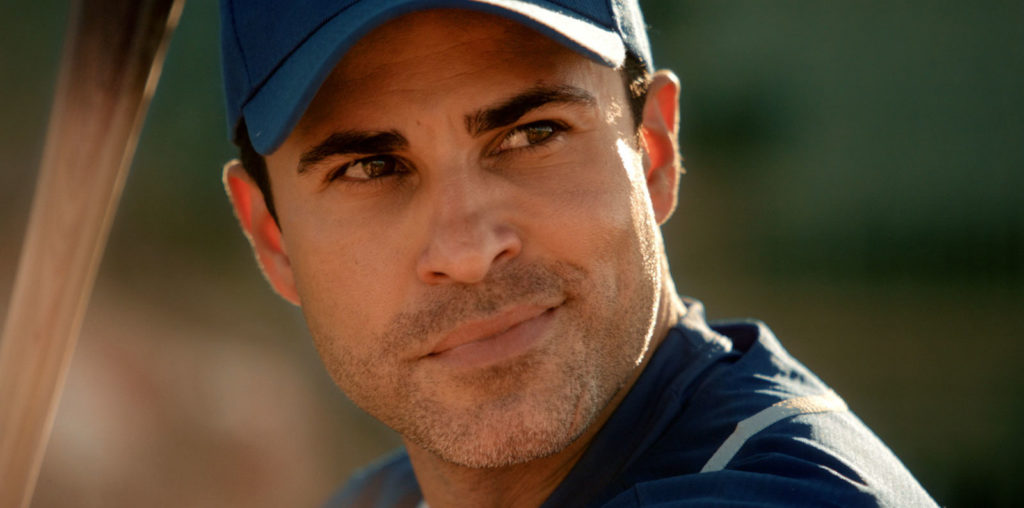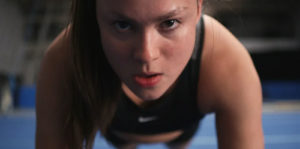
COMING TO THEATERS! You’re gonna flip over the queer cutthroat cheerleading throwdown Backspot, the awesome feature debut by director D.W. Waterson and written by Joanne Sarazen. Riley (Devery Jacobs) and her girlfriend Amanda (Kudakwashe Rutendo) are cheerleaders, but not the giggling in their pom-poms kind. They are the highly athletic kick your a*s in mid-air competitive cheerleaders who happen to be dating.
Riley is highly driven and very talented, but she suffers in private. She has massive anxiety that makes her pull out single hairs on her eyebrow (trichotillomania). Her mom, Tracy (Shannyn Sossamon), tries to help but is a bit of a gasoline puddle herself. Then Riley, Amanda, and friend Rachel (Noa DiBerto) get a chance to try out for the elite cheerleading team Thunder Hawks. They are scrutinized at tryouts by the stern head coach, Eileen McNamara (Evan Rachel Wood), and her laser-eyed assistant coach, Devon (Thomas Antony Olajide). Getting selected to be on Thunder Hawks is everything Riley has worked so hard for, but being under Eileen’s unforgiving thumb is where the real tension sets in.
I knew from watching Reservation Dogs that Jacobs is a smoldering superstar waiting to ignite. But even that did not prepare me for the intensity of her work here. Like the other actresses on the cheer squad, Jacobs does the gymnastics seen onscreen. She can flip like John Belushi down the church aisle in The Blues Brothers. This gets truly impressive in the big competition finale. Her amazing emotional work gets into some raw areas we rarely get to see explored. Backspot has some of the most realistic depictions of pressure-induced anxiety seen onscreen this century.
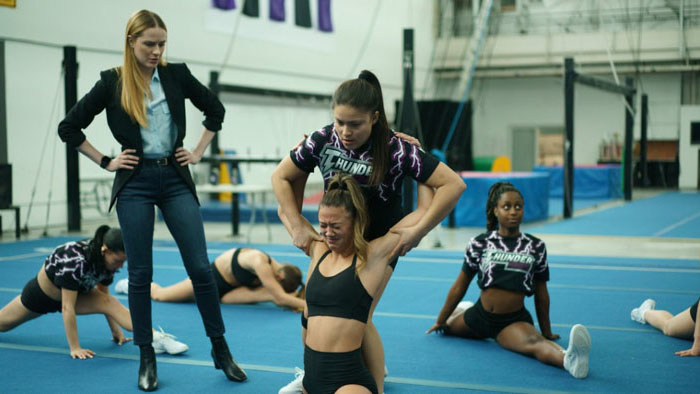
“Getting selected to be on Thunder Hawks is everything Riley has worked so hard for…”
As a key antagonistic source of that pressure, Wood excels. Her excellent portrayal of the relentlessly demanding coach is why this feels like The Devil Wore Prada of cheerleader movies. The actor embraces and radiates the fear she commands like a furious fluorescent tube. It is almost a shame the screenplay by Joanne Sarazen, based on a story by Waterson, chose to humanize the coach to such a degree, as Wood would have delivered a tyrant for the ages. It is this restraint from traditional melodramatic accents that helps define the ambitions of this excellent picture.
Waterson makes a genius move in capturing all the real action in uninterrupted rotating shots. Now that’s a sports film! This is precisely the kind of flick that needs to be seen on as big a screen as possible. It has the same rhythm of imagery found in the work of indie cinema’s famous class of 1999. The visual style seems rooted in the revolutionary flourishes pioneered by those late 1990s directors, keeping the beat perfection of the early work of Aronofsky, Doyle, and Ritchie. The director, who also edited the motion picture, creates a wild frenzy of cuts that gets your nerve ends sparking. The cascading shots contain many kinetic feats of athleticism, and when mixed with the high energy, electronic music explodes in shock waves of big-screen dynamite.
Backspot has the same punch as Run, Lola, Run. Just like that film, the thrills are time released into your system at critical points throughout your viewing. This element keeps things going, as some of the dramatic thunder seems muted at times, especially in the confounding penultimate act. While it features all queer lead characters, it seems to be that this could draw a significant jock audience. They would appreciate how Waterson captures the immediacy and flow of the motion of sports. This is the kind of indie movie we used to get excited about in the last great rush of the 20th century. It is well worth cheering about.
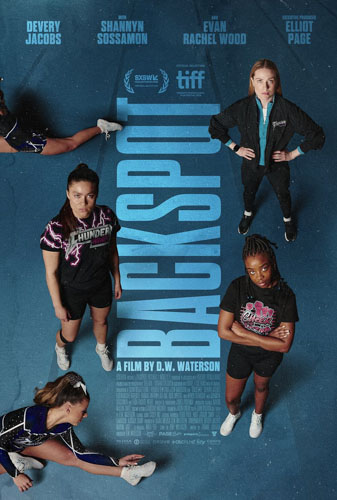
"…has the same punch as Run, Lola, Run."
